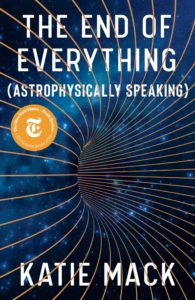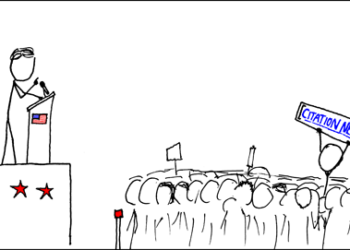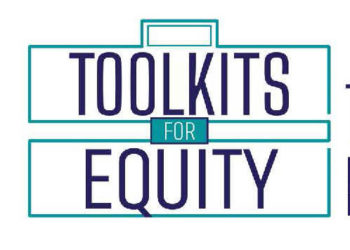Academic publishing, in all its variety, addresses three audiences: researchers, students, and the general public. The first of these audiences is the stock in trade of most posts on The Scholarly Kitchen; it’s the world of Elsevier, AAAS, PLOS, and the university presses. Publishing for students is the province of the college textbook business, which is undergoing structural change at this time; a major reason for this is that, as we now all have come to understand, the great injustice of higher education is not that tuition and fees can cost $60,000 a year or more, but that a textbook from a money-gouging publisher may cost over $100. As for the general public, we of course mean the not-so-general public: not people dressed as Vikings who storm Congress, but the well-educated professionals who run the institutions of our society: doctors, lawyers, teachers, government and NGO employees, and intellectually curious business people. This last category (publishing for the elite segment of the general public) puts us into trade publishing, a wild and wooly beast that is hard to define precisely because it is so big and so diverse. It also can be something of a trap for a well-intentioned academic who wants to write for this audience, as writing for the lay person is often contemptuously dismissed as “popularization.” Woe to the academic who puts an article from The Atlantic or a book from Simon & Schuster into her tenure portfolio! It takes courage. My view is that these brave souls should be called out and celebrated. They are my heroes.

These thoughts are prompted by recently reading an outstanding instance of popularization, Katie Mack’s The End of Everything (Astrophysically Speaking). Mack is an assistant professor of physics at North Carolina State, a fact that we will return to below. I first stumbled on Mack on Twitter (@AstroKatie), where numerous people I follow began to retweet her many comments. Her Twitter presence or persona is not unlike the voice of her book: warm, playful, clear; a sense that hers is an appealing personality. Her book arrived as a gift, and I read it with delight.
So how does someone make the formidable field of astrophysics attractive to a wide audience? Mack begins with an epigraph from Robert Frost, the beautiful “Fire and Ice” (1920). It is a short poem and worth quoting in full:
Some say the world will end in fire,
Some say in ice.
From what I’ve tasted of desire
I hold with those who favor fire.
But if it had to perish twice,
I think I know enough of hate
To say that for destruction ice
Is also great
And would suffice.
 Where Frost is sardonic (“for destruction ice/Is also great”), Mack puts her tongue in cheek and creates an artificial sense of urgency: events that could be billions of years off are matters of concern for us right now. This clever rhetorical trick serves multiple purposes: it infuses the technical material she summarizes with “narrativity,” the property of seeing things arranged as in a story, where there is an impetus to get to the next stage and the ultimate conclusion; and it also makes the silent point that, for all practical purposes, this stuff does not matter; it is not how you pay your bills or ward off political catastrophe.
Where Frost is sardonic (“for destruction ice/Is also great”), Mack puts her tongue in cheek and creates an artificial sense of urgency: events that could be billions of years off are matters of concern for us right now. This clever rhetorical trick serves multiple purposes: it infuses the technical material she summarizes with “narrativity,” the property of seeing things arranged as in a story, where there is an impetus to get to the next stage and the ultimate conclusion; and it also makes the silent point that, for all practical purposes, this stuff does not matter; it is not how you pay your bills or ward off political catastrophe.
The content of the book begins with an overview of the cosmos to date, from the Big Bang until now. Mack then turns to five different scenarios for how the universe will end, summarizing the ideas and the supporting data (where it exists). These different scenarios may be mutually exclusive. For example, one scenario has the universe possibly ending at any instant. Another points to heat death, as the universe continues to expand at a speed faster than light. All of these possibilities are written with astonishing clarity. I cannot imagine how much time went into writing this short book. Every word leads directly to the next, every sentence to the next sentence, every paragraph builds an argument with the following paragraph.
Although I am a huge fan of great works of popularization, I want to caution academic publishers about trying to do this themselves. Trade publishing is very, very hard to do. It is not “simpler” publishing, where hard ideas get watered down and the requirement of footnoting is passed over; it is not something an academic can work on in her spare time. Writing intellectually engaging material for nonspecialists requires commitment and a genuine talent: it is as much about writing as it is about the ideas written about. And even the best instances of popularization have to reckon with the harsh reality of the marketplace, where hundreds of thousands of new books are published every year and only a handful find a readership that goes beyond friends and family.
Which brings us to the point mentioned above: Mack is an Assistant Professor — that is, untenured. How is it that an Assistant Professor can take time off from the necessary tasks of applying for grants, doing research, and publishing articles for the audience of fellow scientists? The answer to this important question appears in the Acknowledgments, where we read:
As a pre-tenure professor, I would not have dared to even begin this project were it not for the support of North Carolina State University, whose innovative Leadership in Public Science Cluster program made it possible for me to carve out an academic path that makes space for connecting with the public.
North Carolina State, in other words, has provided the necessary incentives for Mack to work as a public intellectual. We can only hope that other institutions will follow North Carolina’s example.
But why bother? If a work of popularization does not add to human knowledge, what is the point? And if it is not even designed for classroom instruction, how can the resources that go into a book of this kind — the author’s time, the financial support of the university, the machinery of the publishing process — be justified? I see three benefits from this kind of work. The first is branding: works of this kind redound to the benefit of the parent institution. North Carolina State now has a minor celebrity working for them, and that can help attract students and faculty. There is also the matter of support from the public, provided via the legislature. At a time when higher education is often characterized as elitist and unintelligible, not to mention politically dubious, works of popularization demonstrate that the academy lives very much in the real world. Finally, and, at least for me, most importantly, good examples of popularization provide intellectual pleasure. Works of this kind require no justification beyond themselves. Keats, of course, said it better in the closing lines of “Ode on a Grecian Urn”: “‘That is all/Ye know on earth, and all ye need to know.’”
Discussion
8 Thoughts on "Popularizing Cosmology: The Example of Katie Mack"
Contrary to your statement, it does add to human knowledge; it lets *more* people understand some level of the subject discussed.
Just as a scientific journal paper adds to human knowledge by letting *more* people (than only the authors who figured it out) understand the subject.
Knowledge does not exist on paper, knowledge is knowing in ones brain. Paper is used to communicate knowledge. A book like this does the same as a journal article, just to (and shaped for) a different audience.
Apples and oranges. Knowledge is how much there is to be known, not how many people know it. Similarly wealth is the sum of all assets, not how evenly the assets are distributed. Two different categories, both valid. But you would not criticize a shortstop for failing to get a touchdown.
So knowledge in my head without anybody else knowing “adds to human knowledge”??
If so, the pursuit of knowledge is futile, or at least not beneficial other than for the satisfaction of one person.
(And no, knowledge is not how much there is to be known, knowledge is how much is known. Things that are not known (yet) are not knowledge.)
Knowledge is created
This was a great post. Thank you Joe!
Where I work, what you’re describing as “popularization” is called “translational research” and is being encouraged by the university. The idea is to get concepts from the sciences and humanities (really focusing on the sciences, though) into the mainstream conversation and understood…and to not restrict that information to a self-selecting group of scholars. And to do that, experts need to write popular books, create podcasts, and find every way possible to reach a wider audience. As the Subject Librarian for Psychology, I tell Psych students to listen to the “Two Guys on Your Head” and “The Human Brain” podcasts because they make important theories accessible.
Promotion and tenure committees need to give credit for this work, because it is hard work. Question for the group: how can I, as a Librarian without faculty status, help make that happen?
The other negative spillover of a reward system that disregards or is even dismissive of public writing is that fields are defined (and marketed) as almost exclusively about highly specialized scholarship. Undergraduates (particularly in the humanities) are much more attrached to classes that can convey connections to issues of the day and/or are interdisciplinary rather than being highly specialized. So, if we want more students to be turned on by these ideas, we should reward the version of knowledge creation that attracts them. More students in classes = more faculty positions. Popularizing and public writing can grow the pie. Highly specialized research is both needed and can be thrilling, but if it reigns as the only criteria for reward structures, the fields don’t serve their own futures well.
This is an excellent point, James.


